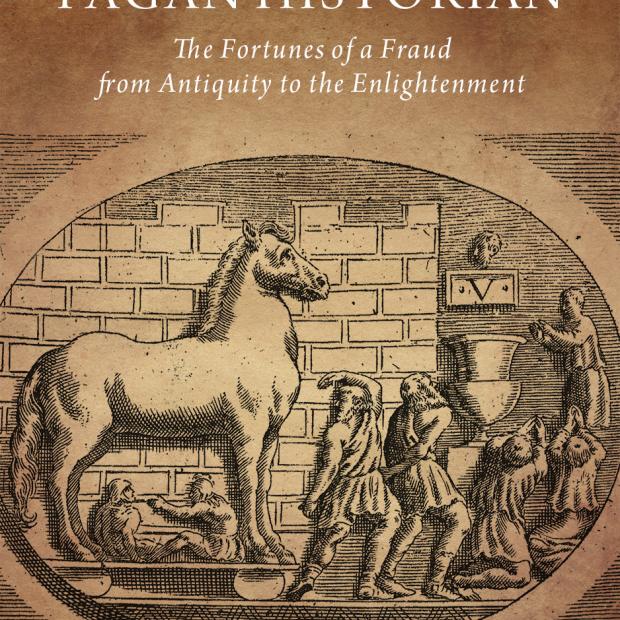The Fortunes of a Fraud from Antiquity to the Enlightenment
Please join us for a book talk by Frederic Clark, a fellow at the Stanford Humanities Center for 2020–21.
The annals of literary history are replete with examples of formerly famous books that have fallen into obscurity and neglect. But few have experienced as marked a reversal of fortune, or as ignominious a fall, as Dares the Phrygian’s History of the Destruction of Troy.
Though scarcely read today, even by classicists, the Destruction of Troy was required reading for centuries throughout medieval and Renaissance Europe. It survives today in numerous manuscripts and printed editions, both in Latin and the modern European vernaculars. Dares’ narrative boldly subverted two of the ancient world’s most canonical poets: Homer and Virgil. And the tradition it inspired influenced everyone from Petrarch to Chaucer to Shakespeare.
Dares made an audacious claim: he presented himself as an eyewitness to the Trojan War. He promised—in arrestingly simple prose—to deliver the facts and just the facts about what really happened at Troy. His battlefield dispatches contained precise casualty figures, and made no mention of the gods or other mythical phenomena. He said nothing about the Trojan Horse, but instead related that Troy fell when Aeneas and several other Trojans betrayed their city and opened its gates to the Greeks.
Although Dares had presumably written in some form of Greek, his text circulated in Latin, in a version supposedly translated by the text’s “discoverer,” the Roman historian Cornelius Nepos. Of course, the real Nepos had never laid eyes upon the book, just as “Dares” had never been a real eyewitness to the Trojan War. While the motives of the actual author of this fake remain enigmatic, he fooled a millennium of readers into labeling him nothing less than the first pagan to write history.
From the late antique encyclopedist Isidore of Seville to Thomas Jefferson, Frederic Clark’s The First Pagan Historian (Oxford University Press, 2020) offers the first comprehensive account of Dares’ rise and fall as a reliable and canonical guide to the distant past. Along the way, it reconstructs the central place of forgery and falsification in longstanding debates over the nature of history, fiction, criticism, philology, and myth, from ancient Rome to the Enlightenment.
About the Speaker
Frederic Clark is Assistant Professor of Classics at the University of Southern California. He is a cultural and intellectual historian who specializes in the afterlife of classical antiquity in medieval and early modern Europe. Clark is the author of The First Pagan Historian: The Fortunes of a Fraud from Antiquity to the Enlightenment (Oxford University Press, 2020), and co-editor of Thinking in the Past Tense: Eight Conversations (University of Chicago Press, 2019). His articles have appeared in such venues as The Journal of the History of Ideas, Viator, Past & Present, and The Journal of the Warburg and Courtauld Institutes, among others. He is a 2020-21 fellow at the Stanford Humanities Center, where he is at work on a book titled Dividing Time: The Invention of Historical Periods in Early Modern Europe (under contract with University of Chicago Press).
Related Events
Xochitl Marsilli-Vargas | Genres of Listening: An Ethnography of Psychoanalysis in Buenos Aires

Kyla Schuller | Counterhistories of Feminism

Susan Gillman | American Mediterraneans

Niloofar Haeri: Say What Your Longing Heart Desires






